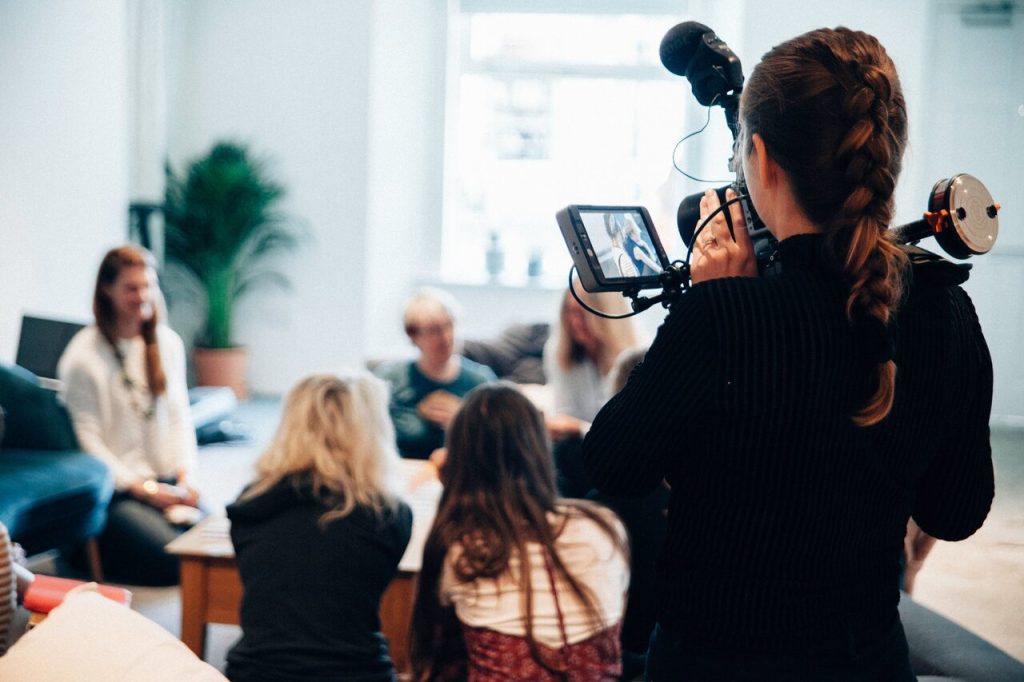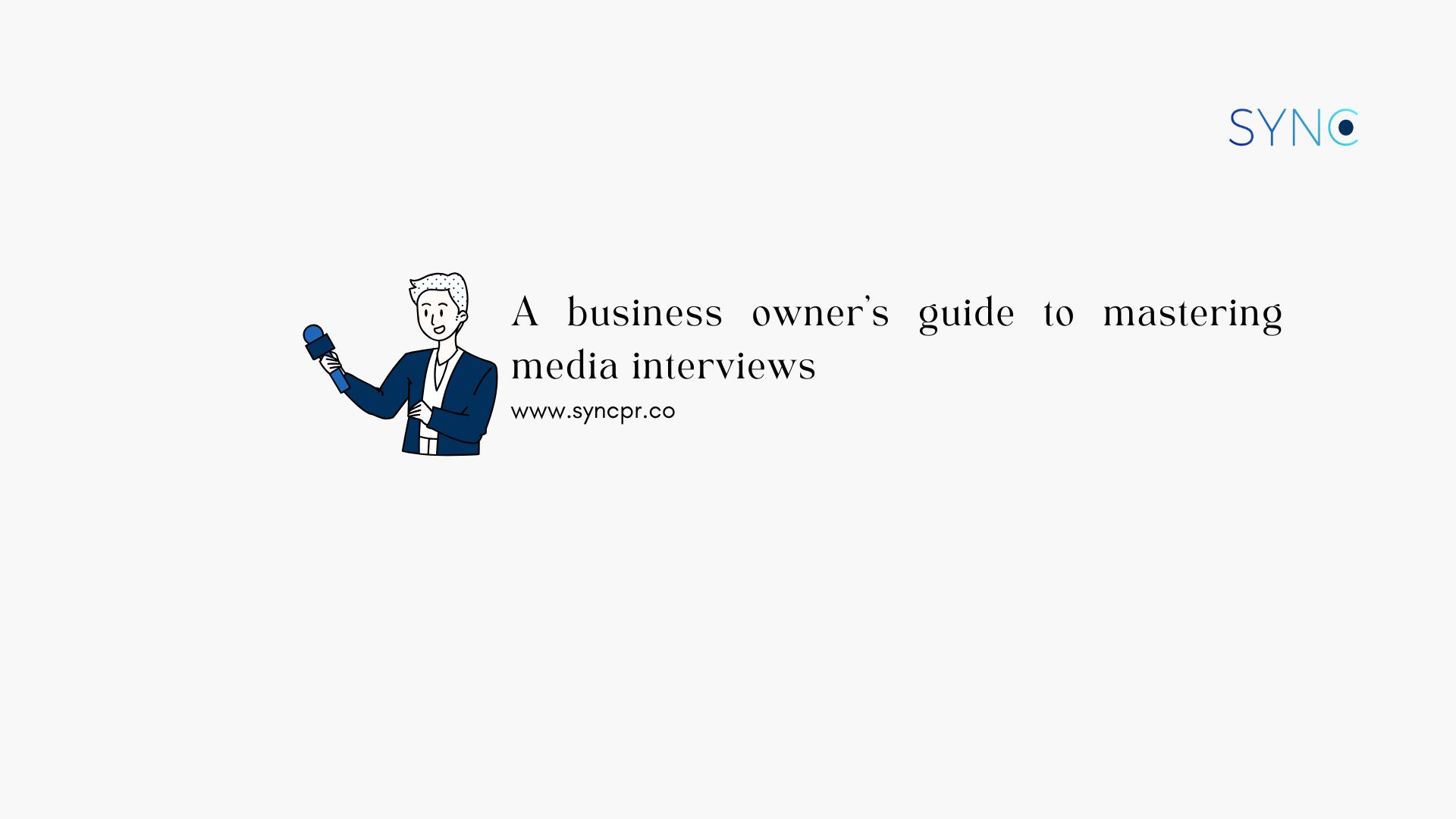How to handle media interviews like a pro and why should you care? So, you’ve been invited for a media interview—exciting, right? But then reality hits: What if I mess up? What if I say something wrong? You are not alone in this. Facing a media interview for the first time can feel like stepping into the unknown. Whether you’re an entrepreneur trying to boost your company’s visibility, or a professional aiming to build your brand, handling media questions requires finesse.
Lucky for you, this isn’t just another article telling you to ‘be prepared’ and ‘practise your answers.’ Instead, let’s dig into what matters when you’re facing a journalist’s questions—how to stay authentic, how to control the conversation without sounding scripted, and most importantly, how to handle those curveball questions that always seem to pop up at the worst moment.
The lowdown on media interviews
Alright, fine—we admit it, you do need to be prepared. But what does that really mean for a media interview? It’s not just about cramming facts and figures the night before and hoping for the best. In fact, memorising answers can backfire—making you sound robotic or unnatural. What you need is a strategy that allows you to adapt on the fly while ensuring your key points get across, no matter what questions come your way.
Here are some ways to help you prepare:
Research the media outlet and journalist when prepping for media interviews
Before anything else, do some homework on the outlet and the journalist conducting the interview. Are they known for hard-hitting questions or a more relaxed, conversational tone? This can give you an idea of what to expect and how to tailor your responses to match the style of the publication or program.

Part of understanding the media outlet is to understand its audience. A business publication with primarily industry experts or corporate readers might demand a more technical or detail-heavy approach, whereas a lifestyle magazine with a broader, more casual audience might call for a lighter, more engaging tone. Knowing the audience is half the battle when it comes to acing media interviews.
Anticipate the tough questions in media interviews
You can’t predict every question, but you can anticipate some tricky ones. Journalists will often ask challenging questions to test your knowledge, and credibility, or even to see how you handle pressure. Instead of dreading these moments in media interviews, use them to your advantage.
Make a list of the 3–5 most difficult questions you could be asked. Draft rough answers—not scripted responses—just key points you want to hit. Practice giving your answers out loud in a conversational tone, so you don’t get caught off guard.
For instance, if you’re in the tech space, a tough question might be about the recent cybersecurity breaches affecting businesses in Malaysia. Rather than stumbling through a technical explanation, prepare a brief, clear response that showcases both your knowledge and your action plan.
Don’t just answer questions in media interviews— control the narrative
This is a great tool for making sure your core messages get through no matter what. The idea is to have 3–4 key talking points you want to convey during media interviews, and then figure out how to weave those into different types of questions, regardless of how tough it may be.
For instance, you may be asked a question like “What if the product fails in the market?” Rather than simply addressing the possibility of failure, use this as an opportunity to pivot back to your core message. You could say, “While every product launch carries some risk, we’ve conducted extensive market research and implemented a strong contingency plan. Our focus is on customer feedback and adapting quickly to meet market demands, which is why we’re confident in the product’s success.”
By responding this way, you’re not just answering the question—you’re controlling the narrative. Instead of letting the conversation dwell on the negative (failure), you’re steering it toward your proactive approach, reinforcing your preparedness and the research behind your decisions. This technique ensures that even difficult questions become opportunities to highlight your key messages, keeping the interview on track with your agenda.
Journalists love tangents, and sometimes an interview can veer off-course or hit a question that’s difficult to answer. This is where pivoting comes in handy. A pivot phrase allows you to acknowledge the question, and then steer the conversation back to your key message.
Example pivot phrases:
“That’s an interesting point, but what’s really important to note is…”
“While that’s one aspect, I think what we really need to focus on is…”
These phrases act as your safety net when the conversation goes off-track. Plus, they help you avoid getting stuck in tricky territory.
Let your body language exude confidence
Whether in person or online, how you carry yourself during an interview is just as important as what you say. In fact, body language can sometimes speak louder than words.
- Keep your posture strong: No slouching or fidgeting. Sit up straight and keep your movements purposeful.
- Eye contact (yes, even online): In virtual interviews, look at the camera, not the screen. It helps simulate real eye contact and keeps you connected to the interviewer.
- Hand gestures: Don’t be afraid to use your hands. Small, natural gestures can emphasise your points, but avoid overdoing them. You’re not directing a symphony!
Being mindful of your body language helps ensure that your confidence and authority come across, even in subtle ways.
Prepare emotionally, too
Media interviews can be nerve-wracking, especially if it’s your first time or the stakes are high. Preparation isn’t just about what you know; it’s about how you manage your emotions.
- Practise deep breathing techniques before the interview to calm your nerves.
- Visualise the interview going well. Athletes do this all the time—it’s a psychological trick that can help you stay confident and composed.
- Set realistic expectations: It’s not about being perfect, it’s about being authentic. A stumble here or there is fine, as long as you recover smoothly.
Bonus tip: Record yourself! We don’t always realise how we come across until we see or hear ourselves. Record a mock interview and play it back. Watch your body language, listen to your tone, and check if your key messages are coming through clearly. This is especially helpful for anyone who tends to ramble or go off-topic.
Nailing a media interview is more than just answering questions; it’s about telling your story and ensuring your key messages shine through. With the right preparation, a solid understanding of your audience, and a strategic approach to handling questions—especially the tough ones—you can transform any interview into an opportunity to connect, engage, and influence. Remember, each question is a chance to reinforce your narrative and showcase your expertise. So, as you gear up for your next media interview, keep these strategies in mind.
Ready to elevate your media presence and craft your brand’s story effectively? Get in touch with us today by dropping us an email at hello(a)syncpr.co.

